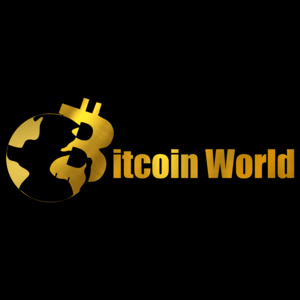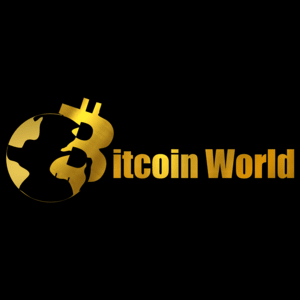Qtum AI Agent Network Set to Launch Next Month, Revolutionizing Decentralized AI
5 min read
The convergence of Artificial Intelligence and blockchain technology is creating exciting new possibilities, pushing the boundaries of what we thought was possible in the digital realm. One such development poised to make a significant impact is the upcoming launch of the Qtum AI Agent Network . Qtum founder Patrick Dai recently took to X to share groundbreaking news about the platform’s future. He announced that Qtum.ai is preparing to unveil an ambitious AI agent network designed to foster a robust and interoperable ecosystem. This network draws inspiration from projects like AI agent Manus.im and is built upon powerful technologies like multi-party computation (MPC) services and agent-to-agent (A2A) communication. The most anticipated detail? The Agent Network is scheduled to launch next month on Qtum.ai, promising full token integration right from the start. This move signals Qtum’s strong commitment to integrating cutting-edge AI capabilities directly into its decentralized framework. What is the Qtum AI Agent Network Set to Achieve? At its core, the Qtum AI Agent Network aims to create an environment where autonomous AI programs, or ‘agents,’ can interact securely and efficiently on the blockchain. Think of it as building a decentralized marketplace or ecosystem specifically for AI services and computations. By integrating features like multi-party computation (MPC), the network can enable complex computations involving sensitive data without revealing the underlying information to any single party. This is crucial for privacy and security in AI applications. Agent-to-agent (A2A) communication, on the other hand, allows these AI agents to collaborate, share information (securely via MPC), and execute tasks together, leading to more sophisticated and dynamic decentralized applications (dApps). The inspiration from Manus.im suggests a focus on creating intelligent, autonomous entities capable of performing tasks, interacting with users, and communicating with other agents within the network. The goal is to move beyond simple smart contracts to create truly intelligent, self-organizing systems on the blockchain. Why is Decentralized AI on the Blockchain So Powerful? Bringing AI capabilities onto a decentralized ledger like Qtum offers several compelling advantages over traditional centralized AI systems: Transparency and Auditability: Operations and interactions between AI agents can be recorded on the blockchain, providing an immutable and transparent log. This increases trust and allows for auditing of AI decisions and processes. Security and Tamper Resistance: Data and models used by AI agents can be secured using cryptographic principles inherent to blockchain, making them resistant to tampering and unauthorized access. Censorship Resistance: Decentralized AI applications are harder to shut down or control by a single entity, promoting greater freedom and accessibility. Data Ownership and Privacy: MPC allows AI computations on distributed, potentially sensitive data without requiring the data to be pooled in one location, enhancing user privacy and control over their information. This combination of features positions Decentralized AI as a potential solution to some of the key challenges facing AI today, such as bias, lack of transparency, and centralized control over powerful algorithms. Understanding AI Agents and How They Communicate In the context of the Qtum AI Agent Network , AI Agents are essentially intelligent programs or services designed to perform specific tasks. These tasks could range from analyzing market data and executing trades to managing supply chain logistics or providing personalized recommendations. The crucial element is their ability to communicate and collaborate. A2A communication protocols allow these agents to: Request services from other agents. Share relevant information (potentially using MPC for privacy). Coordinate actions to achieve a larger goal. Negotiate or trade services using the network’s native token. Imagine a scenario where one agent specializes in data collection, another in data analysis, and a third in executing smart contracts based on that analysis. A2A communication allows them to work together seamlessly on the decentralized network, creating complex, automated workflows. How This Project Represents Significant Crypto Innovation The launch of the Qtum AI Agent Network is a prime example of significant Crypto Innovation because it pushes the utility of blockchain technology beyond simple value transfer and smart contracts. It demonstrates how blockchain can serve as a foundational layer for hosting and coordinating complex, intelligent systems. The full token integration mentioned by Patrick Dai is key. This means the native QTUM token will likely play a vital role within the network, potentially used for: Paying for AI services or computations performed by agents. Staking to run or provide AI agent services. Governance within the network. Incentivizing participation and the development of new AI agents. This integration creates a tokenized economy around decentralized AI, opening up new possibilities for passive income, participation, and investment within the Qtum ecosystem. It’s a step towards building truly decentralized autonomous organizations (DAOs) powered by sophisticated AI. The Future Landscape of Blockchain AI Applications The potential applications for a robust Blockchain AI agent network like the one Qtum is building are vast and exciting. Here are just a few examples: Decentralized Finance (DeFi) Automation: AI agents could analyze market trends, manage yield farming strategies, or execute complex trading algorithms autonomously and transparently on the blockchain. Supply Chain Management: Agents could track goods, verify authenticity using IoT data, and trigger payments or actions based on predefined conditions recorded immutably. Healthcare and Research: Securely analyze distributed medical data using MPC while preserving patient privacy, enabling collaborative research without centralizing sensitive information. Content Curation and Recommendation: Decentralized agents could provide personalized content feeds or product recommendations without relying on centralized platforms that control user data. Gaming and Virtual Worlds: Create more dynamic and intelligent non-player characters (NPCs) or automated game elements that interact realistically within a decentralized environment. The interoperable ecosystem inspired by Manus.im suggests a future where different agents, perhaps developed by various parties, can seamlessly connect and collaborate on the Qtum network, leading to a rich and diverse landscape of decentralized AI-powered services. Challenges and the Road Ahead While the potential is immense, building and scaling a decentralized AI agent network isn’t without its challenges. Technical hurdles related to computational efficiency on a blockchain, ensuring the security and reliability of AI models, and achieving widespread adoption are significant tasks. However, the upcoming launch marks a crucial step forward. It signifies that the foundational technology for hosting intelligent, communicating agents on a decentralized network is becoming a reality. The focus on MPC and A2A communication addresses key needs for privacy and interoperability, setting the stage for future development and innovation. Conclusion: A New Era for Qtum and Decentralized AI? Patrick Dai’s announcement regarding the launch of the Qtum AI Agent Network next month is a significant development for both the Qtum ecosystem and the broader field of Decentralized AI . By combining the security and transparency of blockchain with the power of AI agents, MPC, and A2A communication, Qtum is positioning itself at the forefront of Crypto Innovation . This network has the potential to unlock a new wave of intelligent, autonomous, and privacy-preserving applications that can operate without centralized control. As the network goes live with full token integration, it will be exciting to see how developers and users leverage these capabilities to build the future of Blockchain AI and realize the full potential of interconnected AI Agents in a decentralized world. To learn more about the latest crypto market trends, explore our article on key developments shaping the future of decentralized technology.

Source: Bitcoin World


